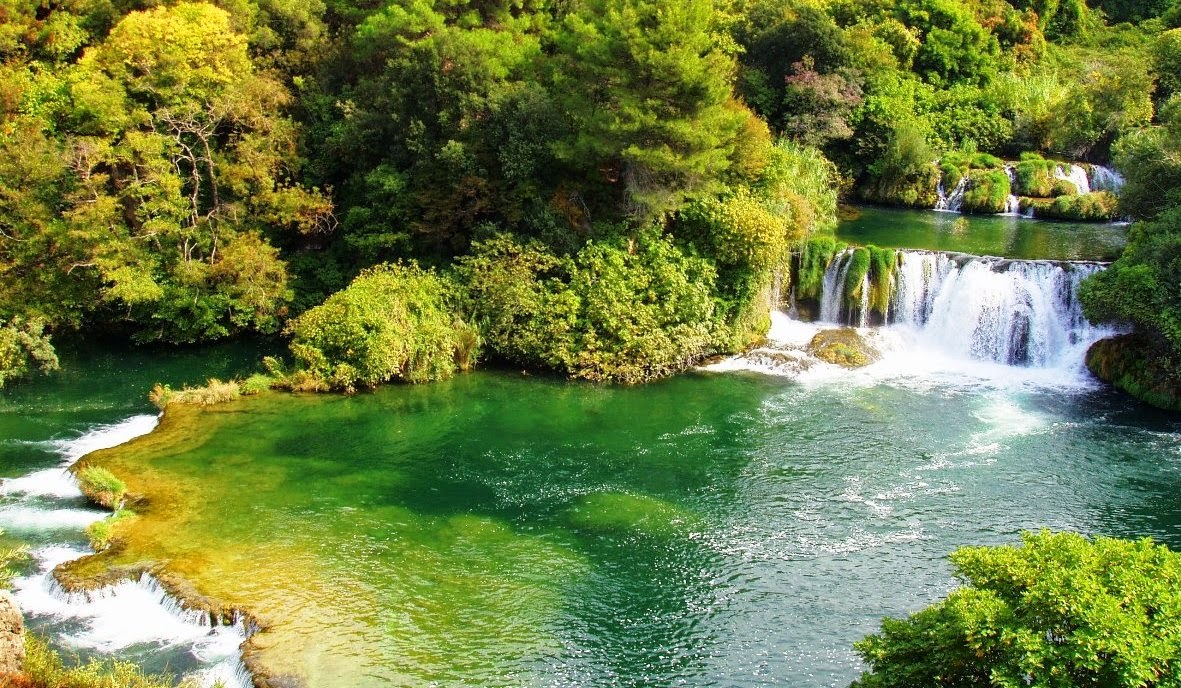The most popular waterfall on the
Krka River is “Skradinski buk” which is longest and one of Croatia’s best known
natural wonders. The waterfall is a huge, clear, natural pool with high falls
at one end and cascades at the other. The most famous lakes in Croatia is clearly
Plitvice lakes, which are a must see site for every visitor in Croatia. If you
travel by car to any region in Croatia, you will be able to visit at least some
of best waterfalls in Croatia, and Skradinski buk is one of them.
The Skradinski buk is the lowest
of the three sets of waterfalls formed along the Krka River and located about
13 KM downstream from Roški slap and an entire of 49 KM downstream from the
source. Skradinski buk is considered one of the most beautiful cliff water
falls in Europe. You can see them with a walk through a Forrest on a wooden
path and bridges. A beautiful walking trail has been constructed over the river
that takes tourists on a light walk through the deep shade of lush
Mediterranean and sub-Mediterranean vegetation.
The growth of travertine barriers
at Skradinski buk was caused by the merger of the waters of Krka River with the
3KM lower current of the Čikola River at Roški slap, producing one of the most rare
and lovely landscapes of the Krka National Park. The combined waters of the
Krka and Čikola Rivers flow over the 17 steps at Skradinski buk, distributed
along the 800 meters in length. The width of the cascades is between 200 and
400 metres with an overall height difference of around 45 meters. Travertine
formations in the lower portion have caves and tufts while the upper portion of
the river includes thresholds, travertine islands, draperies and barriers.
A 60 minute light walk over
bridge take you to deep shade of lush Mediterranean and sub-Mediterranean
vegetation, which offers the unique microcosms of mystical sounds, lights, colors,
the mysterious world of travertine mosses and plentiful plant species of the
travertine barriers and aquatic habitats. Fortunate tourists will not miss the heart
catching song of the nightingale, the splashing of the coot, the swimming of
the Illyrian ide, the call of the green frog, the flight of the hawk and the
playful ballet of emerald dragonflies and colorful butterflies.



















No comments:
Post a Comment